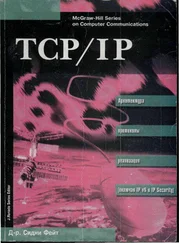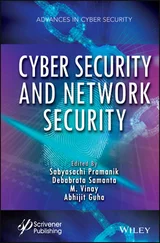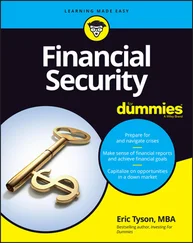Many computer scientists and engineers appear to be on the spectrum to some extent, and we're generally not as good at deception as neurotypical people are. This has all sorts of implications! We're under-represented in politics, among senior executives and in marketing. Oh, and there was a lot less cybercrime before underground markets brought together geeks who could write wicked code with criminals who could use it for wicked purposes. Geeks are also more likely to be whistleblowers; we're less likely to keep quiet about an uncomfortable truth just to please others, as we place less value on their opinions. But this is a complex field. Some well-known online miscreants who are on the spectrum were hapless more than anything else; Gary McKinnon claimed to have hacked the Pentagon to discover the truth about flying saucers and didn't anticipate the ferocity of the FBI's response. And other kinds of empathic deficit are involved in many crimes. Other people with dispositional empathy deficits include psychopaths who disregard the feelings of others but understand them well enough to manipulate them, while there are many people whose deficits are situational, ranging from Nigerian scammers who think that any white person who falls for their lure must think Africans are stupid, so they deserve it, right through to soldiers and terrorists who consider their opponents to be less than human or to be morally deserving of death. I'll discuss radicalisation in more detail later in section 26.4.2.
The third thread is self-deception. Robert Trivers argues that we've evolved the ability to deceive ourselves in order to better deceive others: “If deceit is fundamental in animal communication, then there must be strong selection to spot deception and this ought, in turn, to select for a degree of self-deception, rendering some facts and motives unconscious so as to not betray – by the subtle signs of self-knowledge – the deception being practiced” [906]. We forget inconvenient truths and rationalise things we want to believe. There may well be a range of self-deception abilities from honest geeks through to the great salesmen who have a magic ability to believe completely in their product. But it's controversial, and at a number of levels. For example, if Tony Blair really believed that Iraq had weapons of mass destruction when he persuaded Britain to go to war in 2003, was it actually a lie? How do you define sincerity? How can you measure it? And would you even elect a national leader if you expected that they'd be unable to lie to you? There is a lengthy discussion in [906], and the debate is linked to other work on motivated reasoning. Russell Golman, David Hagman and George Loewenstein survey research on how people avoid information, even when it is free and could lead to better decision-making: people at risk of illness avoid medical tests, managers avoid information that might show they made bad decisions, and investors look at their portfolios less when markets are down [782]. This strand of research goes all the way back to Sigmund Freud, who described various aspects of the denial of unpleasant information, including the ways in which we try to minimise our feelings of guilt for the bad things we do, and to blame others for them.
It also links up with filter-bubble effects on social media. People prefer to listen to others who confirm their beliefs and biases, and this can be analysed in terms of the hedonic value of information. People think of themselves as honest and try to avoid the ethical dissonance that results from deviations [173]; criminologists use the term neutralisation to describe the strategies that rule-breakers use to minimise the guilt that they feel about their actions (there's an overlap with both filter effects and self-deception). A further link is to Hugo Mercier and Dan Sperber's work on the brain as a machine for argument, which I mentioned above.
The fourth thread is intent. The detection of hostile intent was a big deal in our ancestral evolutionary environment; in pre-state societies, perhaps a quarter of men and boys die of homicide, and further back many of our ancestors were killed by animal predators. So we appear to have evolved a sensitivity to sounds and movements that might signal the intent of a person, an animal or even a god. As a result, we now spend too much on defending against threats that involve hostile intent, such as terrorism, and not enough on defending against epidemic disease, which kills many more people – or climate change, which could kill even more.
There are other reasons why we might want to think about intent more carefully. In cryptography, we use logics of belief to analyse the security of authentication protocols, and to deal with statements such as ‘Alice believes that Bob believes that Charlie controls the key  ’; we'll come to this in the next chapter. And now we realise that people use theories of mind to understand each other, philosophers have got engaged too. Dan Dennett derived the intentional stance in philosophy, arguing that the propositional attitudes we use when reasoning – beliefs, desires and perceptions – come down to the intentions of people and animals.
’; we'll come to this in the next chapter. And now we realise that people use theories of mind to understand each other, philosophers have got engaged too. Dan Dennett derived the intentional stance in philosophy, arguing that the propositional attitudes we use when reasoning – beliefs, desires and perceptions – come down to the intentions of people and animals.
A related matter is socially-motivated reasoning: people do logic much better if the problem is set in a social role. In the Wason test, subjects are told they have to inspect some cards with a letter grade on one side, and a numerical code on the other, and given a rule such as “If a student has a grade D on the front of their card, then the back must be marked with code 3”. They are shown four cards displaying (say) D, F, 3 and 7 and then asked “Which cards do you have to turn over to check that all cards are marked correctly?” Most subjects get this wrong; in the original experiment, only 48% of 96 subjects got the right answer of D and 7. However the evolutionary psychologists Leda Cosmides and John Tooby found the same problem becomes easier if the rule is changed to ‘If a person is drinking beer, he must be 20 years old’ and the individuals are a beer drinker, a coke drinker, a 25-year-old and a 16-year old. Now three-quarters of subjects deduce that the bouncer should check the age of the beer drinker and the drink of the 16-year-old [483]. Cosmides and Tooby argue that our ability to do logic and perhaps arithmetic evolved as a means of policing social exchanges.
The next factor is minimsation – the process by which people justify bad actions or make their harm appear to be less. I mentioned Nigerian scammers who think that white people who fall for their scams must be racist, so they deserve it; there are many more examples of scammers working up reasons why their targets are fair game. The criminologist Donald Cressey developed a Fraud Triangle theory to explain the factors that lead to fraud: as well as motive and opportunity, there must be a rationalisation. People may feel that their employer has underpaid them so it's justifiable to fiddle expenses, or that the state is wasting money on welfare when they cheat on their taxes. Minimisation is very common in cybercrime. Kids operating DDoS-for-hire services reassured each other that offering a ‘web stresser’ service was legal, and said on their websites that the service could only be used for legal purposes. So undermining minimisation can work as a crime-fighting tool. The UK National Crime Agency bought Google ads to ensure that anyone searching for a web stresser service would see an official warning that DDoS was a crime. A mere £3,000 spent between January and June 2018 suppressed demand growth; DDoS revenues remained constant in the UK while they grew in the USA [457].
Finally, the loss of social context is a factor in online disinhibition. People speak more frankly online, and this has both positive and negative effects. Shy people can find partners, but we also see vicious flame wars. John Suler analyses the factors as anonymity, invisibility, asynchronicity and the loss of symbols of authority and status; in addition there are effects relating to psychic boundaries and self-imagination which lead us to drop our guard and express feelings from affection to aggression that we normally rein in for social reasons [1849].
Читать дальше

 ’; we'll come to this in the next chapter. And now we realise that people use theories of mind to understand each other, philosophers have got engaged too. Dan Dennett derived the intentional stance in philosophy, arguing that the propositional attitudes we use when reasoning – beliefs, desires and perceptions – come down to the intentions of people and animals.
’; we'll come to this in the next chapter. And now we realise that people use theories of mind to understand each other, philosophers have got engaged too. Dan Dennett derived the intentional stance in philosophy, arguing that the propositional attitudes we use when reasoning – beliefs, desires and perceptions – come down to the intentions of people and animals.









